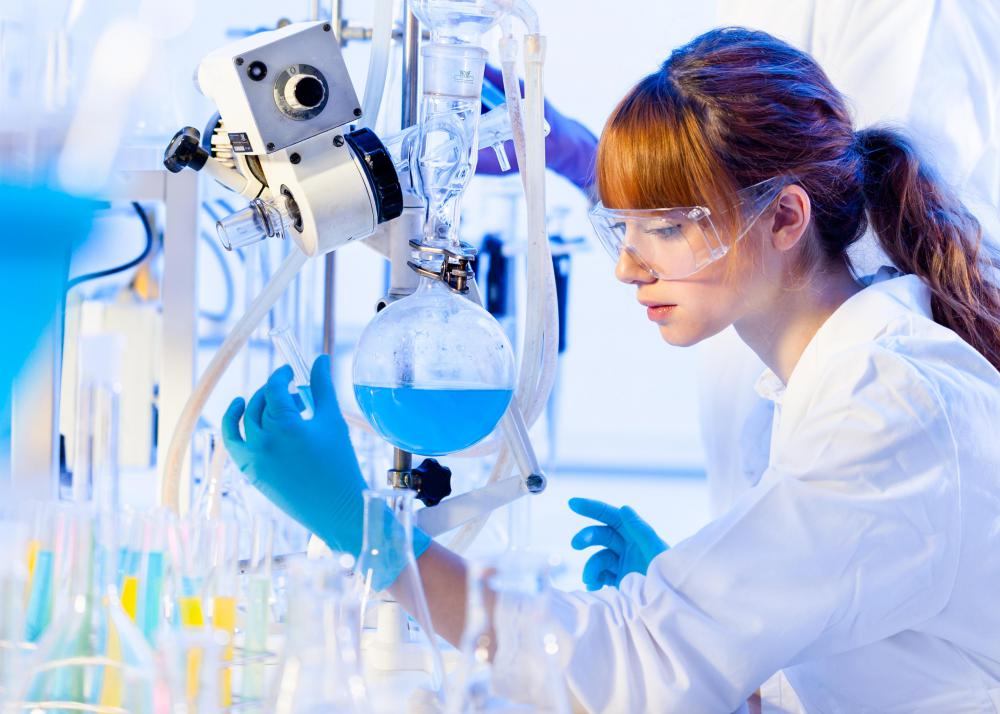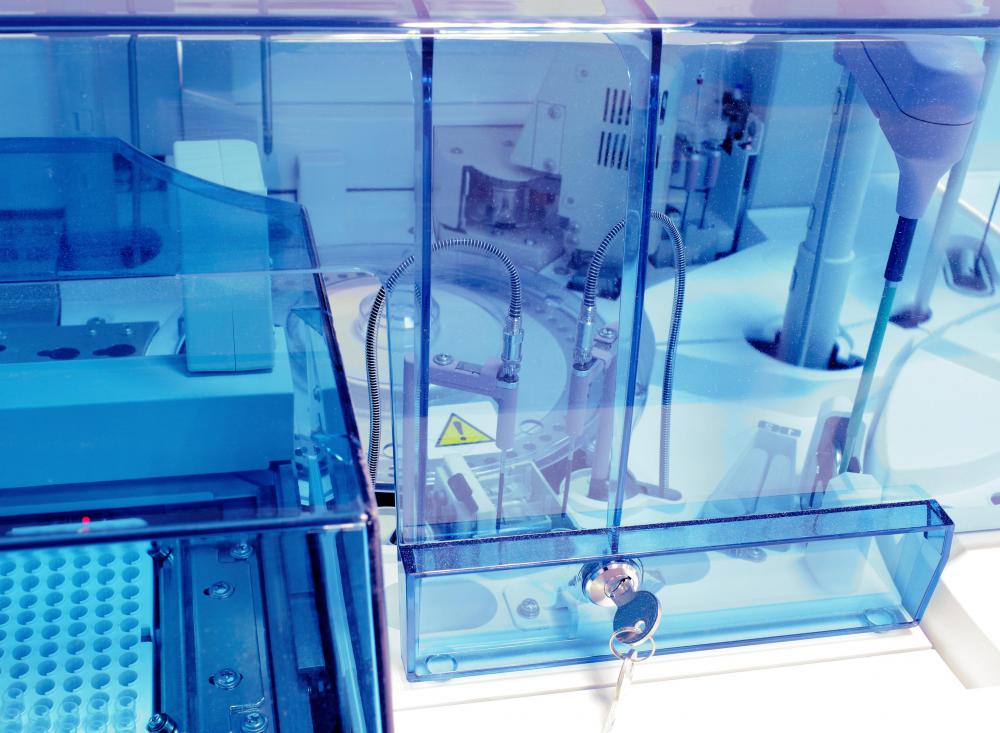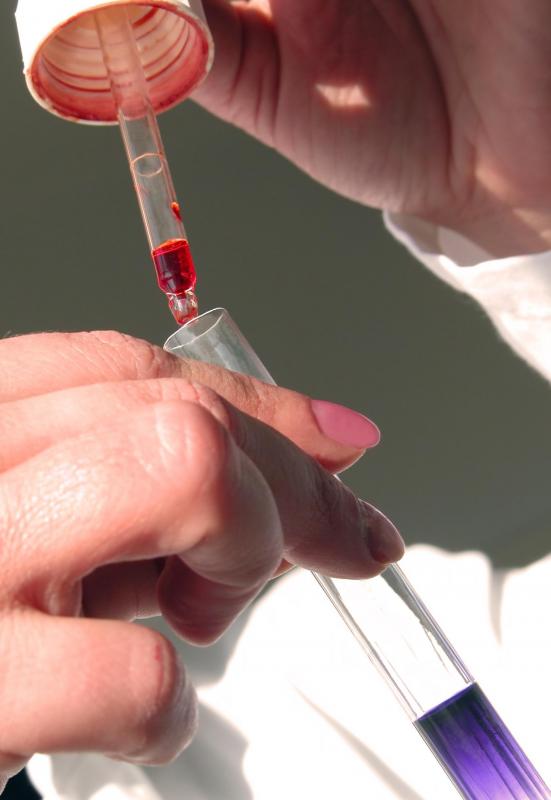At PracticalAdultInsights, we're committed to delivering accurate, trustworthy information. Our expert-authored content is rigorously fact-checked and sourced from credible authorities. Discover how we uphold the highest standards in providing you with reliable knowledge.
What does a Chemical Analyst do?
Analytical chemistry is a field which involves researching the structure and composition of matter, determining what matter is, and how different forms of matter interact and react with one another. A chemical analyst uses scientific, engineering, and mathematical principles to solve problems and carry out chemical research projects. Chemical analysts tend to work in research or in the industrial sector.
The basic role of the chemical analyst is to design, set up, and carry out chemical experiments and analyses. He or she must also operate and maintain lab equipment, prepare chemical reagents to exact specifications, and carry out other support tasks in addition to designing experiments. In addition to laboratory work, the chemical analyst will also spend a good portion of their time writing reports and scientific papers, analyzing data, and using computers to design or model experiments.

Designing, carrying out, and analyzing an experiment can take several months or longer, although in most cases the scientist’s time is not spent exclusively on a single experiment. Following the completion of an experiment the chemical analyst must record and analyze the results, and write them up into a report. A long-term project may involve dozens or even hundreds of separate experiments, the results of which must be compiled and analyzed to produce a set of data. The function and use of this data typically depends on the type of industry in which the chemist works.

Chemical analysts can work in a wide range of different jobs. In industry, they might be involved in quality control, testing products or packaging for structural and chemical integrity on an ongoing basis. Another industrial role for chemical analysts is monitoring pollution levels to ensure that emission levels are within acceptable limits. In medicine, the related field of biochemistry has a role in diagnosis and treatment of disease. Forensic chemistry relates the field to law enforcement, using the principles of chemistry to provide information that can be used as evidence in criminal investigations.

Regardless of where they work and their role, chemical analysts tend to share certain traits in common. An analytical approach to problem-solving is an essential skill, and creativity is also a requirement. Good motor skills and hand-eye coordination are needed for laboratory work, and the ability to focus on repetitive or tedious tasks for long periods of time is also important. A chemical analyst should also be an effective multi-tasker, as he or she will often run several experiments simultaneously, and work on other tasks at the same time. As with other scientific disciplines, the analytical chemist’s education is ongoing, and he or she must keep up with new experimental techniques and technological advances in the field.
AS FEATURED ON:
AS FEATURED ON:
















Discussion Comments
Forensic chemistry has become very popular as a field since with the start of TV shows like CSI since 2000. I read an article in 2012 or 2013 that this is one of the top fields of interest for high school students. They watch how forensic chemistry works through these shows and want to join the field.
As others have mentioned before, these shows do exaggerate how forensic science works. There are some technologies and methods on the show that aren't used in reality. But still, I think it's nice that a field that was not really well known or found interesting before has garnered a lot of attention.
@turquoise-- Yes. I'm not an expert on this topic so I don't know if chemical analysts work with just some type of biochemistry tests or all of them. But they do work in the medical field and in labs in hospitals. I agree with you that they do something very important. Most disorders are difficult or even impossible to diagnose without biochemistry tests.
It's chemical analysts who test our blood when our doctor takes blood tests to check for various things right?
I had a blood test done last week. The results came back the same day and it turned out I have iron deficiency. I'm on iron supplements now and feeling much better. I used to feel so tired before and couldn't concentrate. It's kind of cool how it takes just one test to figure this out. I don't know if chemical analysts job in the lab is difficult but they're definitely doing a great thing.
Post your comments